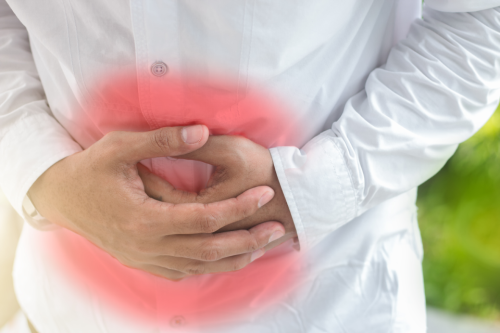Treating Constipation with Peritoneal Dialysis

Peritoneal dialysis (PD) is another way to help clean the toxins in your blood when your kidneys no longer work. The peritoneum cavity is the space within the abdomen that contains the stomach, intestines and liver.) It is the part that does the filtering of toxins. This type of dialysis allows you to, after training, be able to do dialysis treatments in the comfort of your home. You will continue visiting your care team (nurse, dietitian, social worker and nephrologist) at least once a month. PD most closely mimics having a working kidney because the dialysis occurs daily throughout the day. You can learn more about the advantages and challenges of PD here:
Bowel movements and PD
On PD, you drain out your PD fluid several times a day after toxins have collected in the fluid. Since PD uses the peritoneum, it is very important that you have regular bowel movements. If you have constipation, it will be more difficult to drain this fluid and this will cause problems with peritoneal dialysis.
What is constipation?
Constipation occurs when bowel movements become less frequent and stools become difficult to pass. Constipation is a symptom, not a disease, caused mainly by poor diet and lack of exercise (1). There are other causes such as a side effect to a certain medication, diagnoses like irritable bowel syndrome (IBS), pregnancy, travel, laxative abuse, hormonal disturbances, dehydration and nerve damage. It is recommended to see a specialist if your constipation problem is chronic.
Ask your nurse or let them know when you are constipated or not draining well for some reason. You might need medication such as stool softener or even stronger laxatives to help you. Constipation that lasts for more than a day or two needs attention. Ask your nurse, dietitian or doctor before you buy an over-the-counter medication.
Dietary tips
Adding more fiber in your daily diet will help avoid constipation.
- First, start by adding more fruits and vegetables in you daily diet. This should be easy to do, especially if you still have residual function and can add more produce and fiber-rich foods to your daily diet. Almost all fruits and vegetables are allowed on a PD diet since potassium is usually not limited.
- Add more whole grains and legumes in your diet. Eating plant-based protein helps increase fiber intake in diet. Try recipes with chickpeas and lentils,, which are a good source of protein and fiber.
- Eat 4 ounces of plain Greek yogurt, plus a teaspoon of flax seed and fruit or honey.
- If your potassium is normal to low, try eating prunes, which have a natural laxative.
- Try more foods high in probiotics and prebiotics daily. Ask your dietitian for more information.
Physical activity
If you are not able to take brisk walks or ride a bicycle, do simple stretches at home. Yoga exercises are helpful and beneficial for your health overall. Join a gym, walk your dog, join an exercise group, listen to your favorite dancing tunes and dance at home. Movement is very important to increase circulation, burn calories and improve your physical and mental health.
References
Constipation definition and symptoms. www.mayoclinic.org/digestive
Additional Kidney Diet Resources
Visit DaVita.com and explore these diet and nutrition resources:
- DaVita Food Analyzer
- DaVita Dining Out Guides
- Today’s Kidney Diet Cookbooks
- DaVita Kidney-Friendly Recipes
- Diet and Nutrition Articles
- Diet and Nutrition Videos
- Kidney Smart® Virtual Classes
This article is for informational purposes only and is not a substitute for medical advice or treatment. Consult your physician and dietitian regarding your specific diagnosis, treatment, diet and health questions.

Recent Comments